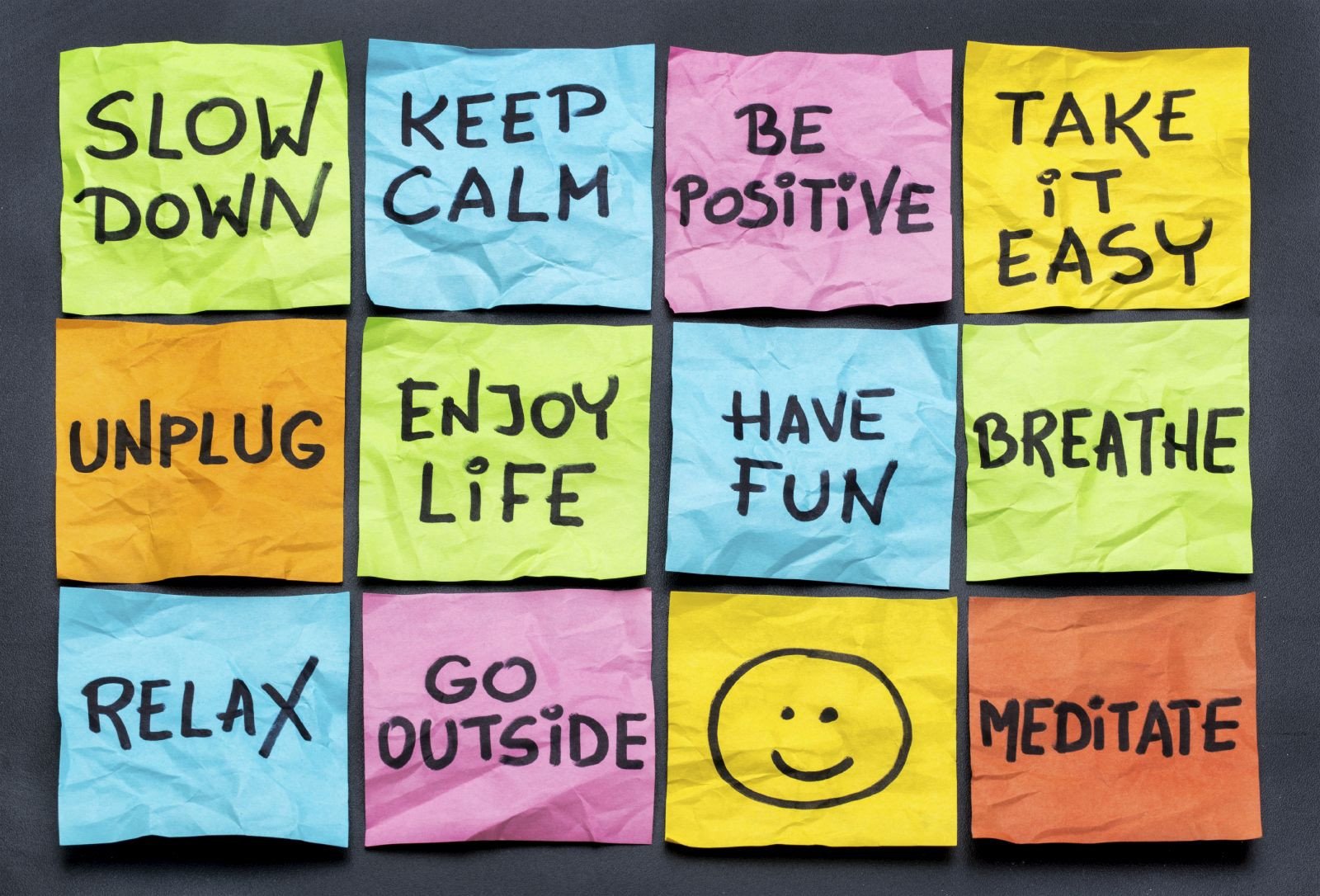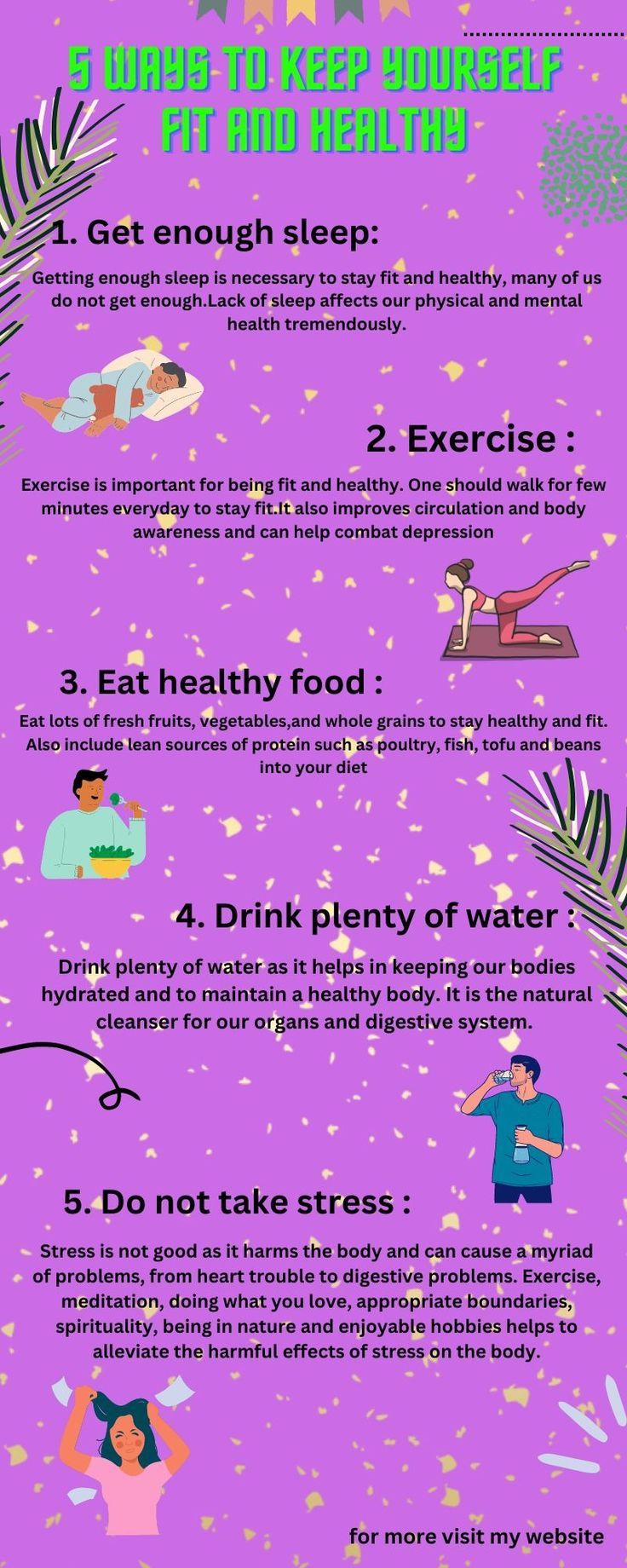Engage in regular exercise and practice mindfulness to effectively reduce stress. Prioritize quality sleep and maintain a balanced diet for stress management.
Stress is an unavoidable aspect of modern life, yet managing it doesn’t have to be cumbersome. Embarking on a journey toward better stress management can profoundly enhance your overall well-being and quality of life. Healthy habits like incorporating physical activity into your routine provide a natural outlet for stress relief.
Similarly, embracing mindfulness through meditation or deep-breathing exercises can calm the mind and diminish the sensation of being overwhelmed. Ensuring you get adequate rest each night and fueling your body with nutritious foods are cornerstone practices that support your body’s ability to handle stressors. By adopting these simple strategies, you set the stage for a more peaceful and resilient existence amidst the challenges of daily life.
:max_bytes(150000):strip_icc()/anger-management-strategies-4178870-final-2a4e9e9e33cc4399b2995c69a46cf84c.png)
Credit: www.verywellmind.com
Unveiling The Impact Of Stress
Stress touches everyone’s life. It often comes without warning. Our bodies and minds react, sometimes to help us but also, at times, to our detriment.
The Stress Response: Friend Or Foe?
You might wonder if stress is good or bad. The stress response is your body’s way of protecting you. When working right, it can save you from danger or push you to meet a deadline. But there’s a catch.
- Short-term stress boosts your focus and energy.
- Over time, too much stress can harm your health.
Physical And Psychological Toll Of Chronic Stress
Living with stress all the time takes a heavy toll. It affects both body and mind.
| Physical Effects | Psychological Effects |
|---|---|
| Sleep problems | Anxiety |
| Headaches | Depression |
| High blood pressure | Memory issues |
| Weakened immune system | Concentration challenges |
Recognizing these signs early is important. Seek ways to manage stress to maintain your health and well-being.
Remember, tackling stress is about balance. Find strategies that work for you and lead a happier life.
Mindful Breathing As A Stress Antidote
Feeling overwhelmed or on edge? Mindful breathing could be your secret weapon. This simple yet powerful technique can reset your stress levels. It guides your focus back to the present. Let’s explore how controlling your breath can control your stress.
Basics Of Breathwork
Breatework is easy to learn and doesn’t need special tools. It’s the act of breathing with intention. You concentrate on the rhythm of your inhales and exhales. Doing this can calm your mind and relax your body.
- Find a quiet place to sit or lie down.
- Close your eyes to reduce distractions.
- Take slow, deep breaths through your nose.
- Exhale through your mouth longer than your inhale.
These steps lay the foundation for stress relief. Do this for a few minutes daily, and watch your stress drip away.
Guided Practices For Daily Relief
For those new to mindful breathing, guided practices can be a great starting point. These are audio instructions that lead you through breathing exercises. They help you focus and find calm.
- Choose a guided practice from a reputable source.
- Set aside time each day for this practice.
- Use headphones for better concentration.
- Follow the voice and breathe as directed.
Many apps and online videos offer free guided exercises. You can find ones that are just a few minutes long. Perfect for a quick stress break at work or home.
Nourishing The Body To Combat Stress
Nourishing the Body to Combat Stress is crucial for maintaining emotional balance. A well-fed body can better cope with pressure. Food is not just fuel; it’s also a weapon against stress. The right nutrients reinforce your body’s defenses. Let’s dive into the specific foods and hydration habits that can help you stay relaxed.
Stress-busting Foods And Nutrients
Eating certain foods can lower stress levels significantly. These foods are rich in vitamins, minerals, and antioxidants. They help your body manage stress and keep you healthy.
- Dark chocolate – rich in antioxidants, improves mood.
- Blueberries – offer Vitamin C, combat stress hormones.
- Nuts and seeds – contain magnesium, reduce stress.
- Leafy greens – high in folate, produce dopamine.
- Oily fish – rich in Omega-3, lower anxiety levels.
| Nutrient | Food Source | Benefit |
|---|---|---|
| Vitamin B | Whole grains, eggs | Energy production |
| Potassium | Bananas, oranges | Regulates blood pressure |
| Probiotics | Yogurt, kefir | Improves gut health |
The Role Of Hydration In Stress Management
Staying hydrated is a simple yet effective way to reduce stress. Water aids every system in your body. It helps your brain to function well.
- Drink at least 8 glasses of water a day.
- Avoid too much caffeine, it can increase anxiety.
- Opt for herbal teas that promote relaxation.
Remember: Your body needs water to manage stress. Make sure you drink enough throughout the day.
The Restorative Power Of Sleep
Good sleep is critical for keeping stress levels in check. An uninterrupted slumber refreshes the mind, repairs the body, and prepares you for a new day. When we don’t get enough sleep, our bodies produce more stress hormones. So, a peaceful night’s rest is a powerful tool against stress. Let’s explore ways to create the ideal sleeping environment and habits.
Crafting A Sleep-inducing Environment
Your bedroom should be a sanctuary designed for sleep. Keep it cool, dark, and quiet. Use blackout curtains, an eye mask, and earplugs if needed. Ensure your mattress and pillows provide proper support. A clean, clutter-free space also sets the stage for quality rest.
Consider the sensory experience: soft sheets, a calming color palette, and maybe a hint of lavender. These touches can signal your brain that it’s time to wind down.
Sleep Hygiene Tips For Quality Rest
- Stick to a schedule: Go to bed and wake up at the same time daily.
- Avoid screens before bed: Blue light from devices can disturb your sleep cycle.
- Ease into sleep: Try reading or gentle stretches as part of your bedtime routine.
- Limit naps: If you must nap, keep it short—no more than 20 minutes.
- Mind what you consume: Avoid caffeine and heavy meals close to bedtime.
Making these changes can lead to deeper sleep. They improve your sleep quality over time. Remember, consistency is key. Create routines that encourage your body to rest well.
Physical Activity: A Natural Stress Reliever
Feelings of stress can be a challenge for many. Physical activity offers a powerful outlet.
Working out sparks endorphin release. Endorphins are nature’s painkillers and mood lifters.
Exercise reduces stress hormone levels. It also helps with sleep quality.
Types Of Exercise To Alleviate Stress
Different exercises have unique benefits. Here’s a quick guide:
- Yoga: Combines breath work, meditation, and movements. Ideal for calming the mind.
- Running: Improves cardiovascular health. Creates a ‘runner’s high’ from endorphin release.
- Swimming: Low impact and meditative. Works the whole body.
- Strength Training: Builds muscle and resilience. Boosts mood by increasing self-efficacy.
Building A Consistent Movement Routine
Consistency is key for long-term stress relief. Follow these steps:
- Set Realistic Goals: Start with achievable targets to build momentum.
- Find Activities You Enjoy: You’re more likely to stick with fun exercises.
- Make It a Habit: Aim for the same time every day to establish a routine.
- Track Progress: Use a journal or app to monitor improvements.
Regular exercise fosters resilience against stress. Begin with small steps and gradually increase intensity.
Embracing Connection And Community
In our fast-paced lives, stress can knock on anyone’s door. Embracing connection and community offers a powerful way to keep these stress levels in check. Let’s dive into how social ties can help us float instead of sink under pressure.
Social Support As A Stress Buffer
We don’t have to fight stress alone. Having friends and family around acts like a cushion when life throws curveballs. Here’s how:
- Friends listen. They offer shoulders to lean on.
- Laughter with others releases stress-busting hormones.
- Physical presence of loved ones can lower heart rate and blood pressure.
Joining groups that share your interests can lead to new, supportive friendships. Try local clubs, online forums, or volunteer groups. These connections reinforce the idea that we’re all in this together.
The Importance Of Meaningful Engagement
It’s not just about having friends; it’s about deep connections. Meaningful engagement with others can:
- Give us a sense of belonging.
- Make our lives feel purposeful.
- Offer different perspectives to our problems.
Look for ways to connect on a deeper level. Share your ideas, concerns, and joys. Attend events or workshops that align with your passions. Participate in community service—helping others can help reduce stress too.
Remember, the strength we gain from our tribe is immeasurable. Seek out your community, and cherish these bonds; they’re your fortress against stress.
Harnessing Creativity And Hobbies
Escaping the grip of stress can be a work of art—literally. Crafting, painting, or diving into hobbies are powerful tools to melt away worry. These activities are not just for fun. They are proven stress busters. Let’s explore how you can weave creativity and hobbies into your daily life.
Creative Outlets For Stress Reduction
When life’s hustle and bustle amps up the pressure, creative outlets offer respite. Painting, writing, or playing music can transport you to a tranquil state. Here are some creative activities to try:
- Sketching or Coloring: Simple yet mightily effective. Grab a coloring book or a blank canvas and let your imagination do the rest.
- DIY Crafts: Create something useful and immerse yourself in the joy of making.
- Music: Play an instrument or even listen to a tune can soothe your mind.
- Writing: Journal your thoughts or pen a poem.
- Gardening: Connect with nature and cultivate your green space.
Incorporating Hobbies Into Your Routine
To keep stress at bay, add hobbies to your daily life. Here’s how to make hobbies part of your routine:
| Time of Day | Hobby Idea |
|---|---|
| Morning | Yoga or meditation to start the day balanced. |
| Lunch Break | Quick sketches or a brisk walk. |
| Evening | Read a chapter of a book or craft. |
- Prioritize your hobbies just like any important appointment.
- Set achievable goals within your hobby to keep it exciting.
- Involve others to make it a social and stress-reducing activity.
Embrace the joy hobbies bring and watch stress slip away.

Credit: www.health.harvard.edu
Technology-assisted Relaxation Techniques
In the swirl of modern life, finding peace can often be challenging. Technology-Assisted Relaxation Techniques shine as beacons of calm. Unlike traditional methods, these high-tech strategies are readily accessible. They provide personalized stress management at your fingertips.
Apps And Online Tools For Mindfulness
Busy schedules make it hard to find time for stress relief. Mindfulness apps offer a solution. These apps guide you through exercises. They fit neatly into short breaks. Here are some popular tools:
- Headspace: Start with guided meditations.
- Calm: Use sleep stories to relax at night.
- Insight Timer: Choose from thousands of meditations.
Online platforms also offer breathing exercises and mindfulness training. They help to focus the mind. They also soothe the nervous system.
The Role Of Virtual Reality In Stress Therapy
Virtual Reality (VR) is a game-changer in stress therapy. It immerses you in calming environments. Imagine a beach or forest scenario. You’re not just viewing it; you’re part of it. This deep level of engagement enhances relaxation. Key benefits include:
| VR Benefits | Description |
|---|---|
| Immersive Experience | Feel present in peaceful surroundings. |
| Controlled Environment | Choose settings that calm you the most. |
| Measured Progress | Track your journey to relaxation. |
VR therapy sessions can be tailored. They target your unique stressors. They aid in managing anxiety levels effectively.
Reflective Practices For A Clear Mind
The fast pace of life often builds up stress. It’s essential to find peaceful moments for a clear mind. Reflective practices effectively reduce stress. They provide insight into our thoughts and feelings. This personal understanding promotes mental serenity. Reflective practices like journaling and meditation can guide us to a calm state. Let’s explore how these methods can help us manage stress levels.
Journaling For Self-discovery
Writing down thoughts and experiences is a powerful tool for stress relief. Journaling fosters self-awareness and emotional release. It turns chaos into order, making overwhelming feelings manageable. By committing to daily journaling, individuals embark on a journey of self-discovery. This habit allows for tracking stressors and reflecting on how to handle them.
- Daily prompts: Use questions to dive deeper into personal challenges.
- Gratitude lists: Focus on positivity to shift perspective.
- Mood tracking: Identify patterns and triggers in emotional well-being.
Meditation And Visualization
Meditation brings a sense of calmness. Itreduces anxiety levels and enhances focus. The practice of visualization goes hand in hand with meditation. It involves picturing a peaceful scene or outcome. This method creates a mental sanctuary where stress fades away.
| Technique | Benefit |
|---|---|
| Breath Focus | Slows down the mind, instills peace. |
| Guided Imagery | Inspires positive change in attitude. |
| Progressive Muscular Relaxation | Relieves physical tension, promotes relaxation. |
Regular practice sets a foundation for stress resilience.
:max_bytes(150000):strip_icc()/3145195-article-tips-to-reduce-stress-5a8c75818e1b6e0036533c47-922c3155e9c846eaa7447c75030b2c13.png)
Credit: www.verywellmind.com
The Serenity Of Nature’s Embrace
The embrace of nature offers a calm unmatched by any urban comfort. Trees swaying, birds singing, and the gentle rustle of leaves—these simple joys provide profound peace. Beholding nature’s beauty, the stress of everyday life seems to vanish. This is not just a feeling; it’s science-backed truth.
Ecotherapy And Stress
Ecotherapy, also known as nature therapy, revolves around healing and growth through interaction with the earth. Breathing in clean air refreshes the body and mind, reducing stress hormones. Activities like walking in a park or gardening can have significant positive effects on mood and anxiety levels.
- Decreases cortisol levels
- Boosts mood and self-esteem
- Encourages mindfulness and stress reduction
Planning For Regular Nature Excursions
Committing to regular nature excursions is essential for sustained stress management. Here’s how to make it happen:
| Step | Action | Outcome |
|---|---|---|
| 1 | Mark dates on your calendar | Ensures commitment |
| 2 | Choose various natural settings | Keeps experiences fresh and diverse |
| 3 | Include friends or family | Enriches social bonds |
Pack a small bag with essentials, leave technology behind, and let nature’s serenity embrace you. It is a simple yet effective remedy for modern stresses. Don’t wait for stress to mount. Let nature’s healing power help you stay calm and centered.
Frequently Asked Questions Of Healthy Ways To Keep Your Stress Levels Down
How Do You Keep Your Stress Level Healthy?
To maintain a healthy stress level, prioritize regular exercise, ensure adequate sleep, practice mindfulness or meditation, establish a balanced diet, and carve out time for hobbies and relaxation.
What Are The 4 A’s Of Stress Management?
The 4 A’s of stress management are Avoid, Alter, Adapt, and Accept. These strategies help cope with stress by changing the situation or your reaction to it.
How Can I Reduce Stress In My Body?
Engage in regular physical exercise, practice mindfulness or meditation, maintain a balanced diet, ensure adequate sleep, and manage time effectively. Consider deep breathing techniques for immediate stress relief.
What Can You Do For Mental Stress?
To manage mental stress, practice mindfulness, engage in regular physical activity, get adequate sleep, try deep breathing exercises, and talk to a trusted friend or therapist.
Conclusion
Managing stress effectively enhances your overall well-being. Adopting healthy habits, such as practicing mindfulness, can significantly reduce tension. Regular exercise and balanced nutrition also play vital roles. Remember to prioritize rest and seek support when needed. Embrace these strategies to maintain a calmer, healthier lifestyle.


